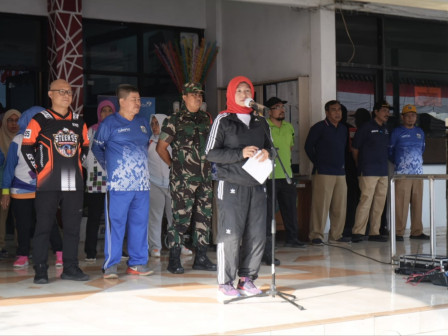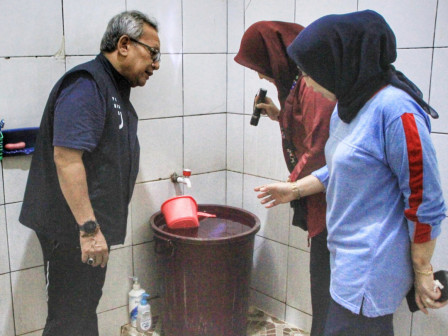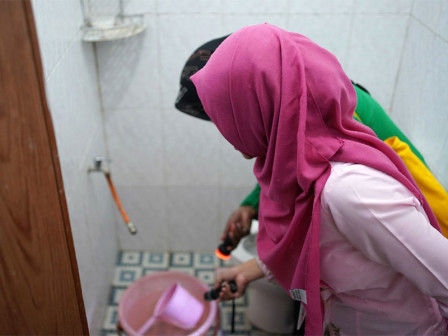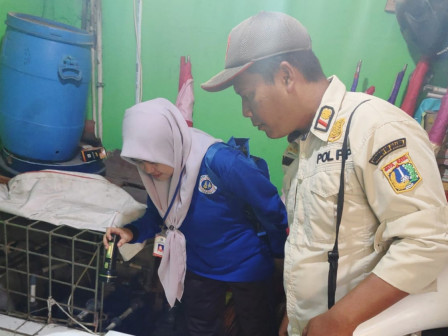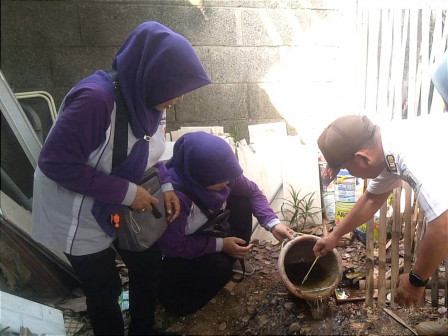PSN and PHBS must Be More Intensive, E. Jakarta Mayor Says
Reported by Nurito | Translated by Nugroho Adibrata
East Jakarta Deputy Mayor, Iin Mutmainnah, urged all Jumantik cadres and elements of society in the Pasar Rebo Sub-district area, to further improve the Eradication of Mosquito Nests (PSN) and Clean and Healthy Lifestyles (PHBS) to reduce cases of dengue hemorrhagic fever (DBD).
This is something that must be a concern for all parties to hold PSN in these locations
According to her, the highest number of dengue fever cases in East Jakarta is in the Pasar Rebo sub-district area, reaching 425 cases. Hence, he wanted PSN and PHBS activities to be carried out effectively by involving all elements of government and society.
This cooperation must involve the Community Health Center, sub-district/urban village, elements of the three pillars, RT/RW administrators, LMK, PKK cadres, Jumantik, Dasawisma, etc.
DHF Cases in West Jakarta Dropped Drastically in June"PSN must be further encouraged by monitoring places where possible breeding grounds for the Aedes aegypti mosquito can occur. This is a concern for all of us, thus there will be changes next week," she expressed, when she attended a joint ceremony in the courtyard of the Pasar Rebo Sub-district office, Tuesday (7/9).
She asserted it was mandatory to conduct monitoring and evaluation in residential areas, workplaces, food processing places, health facilities, health institutions, public places, and sports facilities.
"Empty houses and empty land abandoned by their owners, this is something that must be a concern for all parties to hold PSN in these locations," she explained.
East Jakarta Health Sub-agency Head, Herwin Meifendy uttered that the current total number of dengue fever cases in his area is 2,697 cases with the highest distribution in Pasar Rebo, reaching 425 cases.
It is followed by Matraman 278 cases, Cipayung 256 cases, Kramat Jati 347 cases, Ciracas 326 cases, Jatinegara 184 cases, Duren Sawit 269 cases, Makasar 113 cases, Pulogadung 172 cases, and Cakung 327 cases.
"During the rainy season, the vector population is quite high. Because there are many puddles of rainwater which become breeding places for mosquitoes," he finished.

